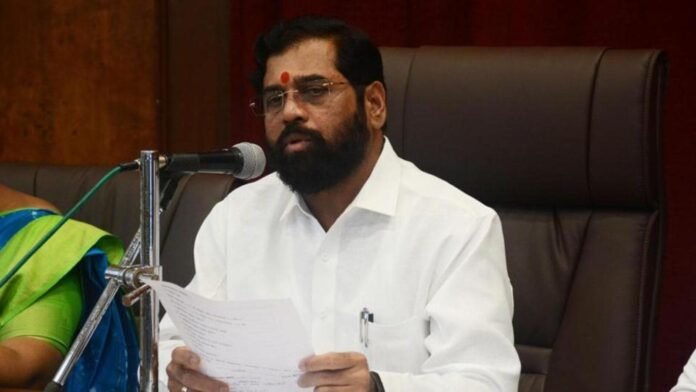In the bustling city of Mumbai, a massive hoarding collapsed, resulting in multiple fatalities and injuries. Maharashtra Chief Minister Eknath Shinde has announced a compensation of Rs 5 lakh for the families of the deceased victims, seeking to provide some relief in the wake of this calamity.
The incident occurred in the crowded vicinity of Andheri West, a bustling area known for its heavy foot traffic and congested streets. Onlookers described the scene as chaotic and heart-wrenching, with the massive structure collapsing suddenly, trapping several pedestrians and motorists underneath. Emergency services were quick to respond, with teams from the Mumbai Fire Brigade, National Disaster Response Force (NDRF), and local police working tirelessly to rescue survivors and retrieve bodies.
Preliminary investigations suggest that the hoarding, which was mounted on a commercial building, collapsed due to structural weaknesses exacerbated by recent heavy rains. The city’s aging infrastructure and the frequent occurrence of unauthorized and poorly maintained hoardings have been a persistent issue, often resulting in such tragedies. This incident has once again brought these issues to the forefront, raising urgent questions about the city’s preparedness and regulatory oversight.
Chief Minister Shinde, who visited the site of the collapse, expressed his condolences to the families of the victims and assured them of the government’s support. “This is a tragic incident, and my heart goes out to the families who have lost their loved ones. The state government will provide a compensation of Rs 5 lakh to the families of the deceased and ensure that the injured receive the best possible medical treatment,” he said. He also directed the authorities to conduct a thorough investigation and take stringent action against those found responsible for negligence.
The compensation announcement, while a necessary immediate relief, has sparked discussions about the broader issues of urban safety and governance. Critics argue that such measures, though essential, are reactive rather than preventive. They emphasize the need for stringent enforcement of building codes and regular inspections to prevent such incidents from recurring. Urban planning experts point out that Mumbai’s rapid and often unregulated growth has led to numerous safety hazards, including the proliferation of illegal structures and poorly maintained advertisements.
Residents of the area have expressed their anger and frustration over the incident. Many have pointed out that the hoarding had been a safety concern for a long time, with several complaints made to the local municipal corporation going unaddressed. “This tragedy could have been avoided if the authorities had taken timely action. It is not just about compensation; it is about accountability and ensuring such incidents do not happen again,” said a local shopkeeper who witnessed the collapse.
In the aftermath of the incident, there have been calls for a comprehensive audit of all hoardings in Mumbai to ensure their structural integrity. Civic authorities have promised to take swift action, with Municipal Commissioner Iqbal Singh Chahal stating, “We will conduct a thorough audit of all hoardings across the city and remove any that are found to be unsafe. The safety of our citizens is our top priority.”
The hoarding collapse has also reignited the debate on the need for sustainable urban development in Mumbai. The city’s infrastructure, which struggles to keep pace with its growing population and commercial activities, requires urgent attention. Experts advocate for the adoption of modern urban planning techniques that prioritize safety and sustainability, alongside stricter regulations and enforcement mechanisms.
As Mumbai grapples with the aftermath of this tragic incident, the focus remains on ensuring that the victims’ families receive the promised support and that measures are implemented to prevent such disasters in the future. The compensation announced by Chief Minister Shinde is a step in the right direction, but it is clear that long-term solutions are needed to address the root causes of such urban tragedies. The hope is that this incident will serve as a wake-up call for all stakeholders to work towards a safer, more resilient Mumbai.

